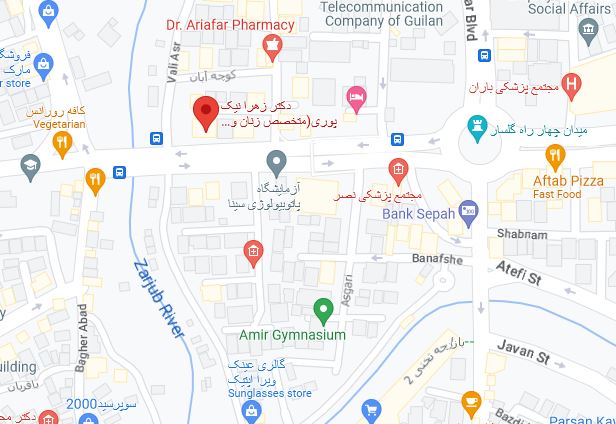October 12, 2011 — Governor Jerry Brown's veto of a bill that would have required California physicians to tell patients when screening mammography uncovers dense breast tissue, which can hide cancerous growths, has angered supporters looking to take their campaign nationwide.
Brown sided with the powerful California Medical Association and other state physician professional groups October 9 when he withheld his signature, which was needed to enact legislation after legislative passage.
Federal law already requires mammographers to inform patients about negative screenings. California Senate Bill 791 would have mandated additional language to disclose the presence of dense breast tissue and its risk for hiding small abnormalities. Patients would have been informed that they could benefit from supplementary screening tests that should be discussed with their physicians.
In his veto statement, Brown said the risks for heightened patient anxiety from the mandated disclosures and prescriptive tone about possible need for more screening tests outweighed the potential benefits of disclosing more information to patients about their breast health.
The Association of Northern California Oncologists, American Congress of Obstetricians and Gynecologists (District IX), California Radiological Society, and Medical Oncology Association of Southern California joined the California Medical Association in opposing the bill. In a prepared statement, the California Medical Association said the legislation was vague and would impose additional costs on the patient from procedures not covered by healthcare insurance.
The measure was supported by the California Nurses Association; the Association of Women's Health, Obstetric and Neonatal Nurses; the California Association of Health Underwriters; the Breast Cancer Fund; the California National Organization for Women; the Ravenswood Family Health Center; Democratic Activists for Women Now; the Shelia R. Veloz Breast Imaging Center; and the California Communities United Institute.
A True Defeat
Amy Colton, a registered nurse whose experiences as a patient with breast cancer led to the legislation, characterized the veto as "a true defeat for the women of California," in an interview with Medscape Medical News.
"The essential issue here is a woman's right to know her breast density. It is critical information about her own physiology that could potentially save her life," she said.
Colton, who lives in Soquel, a small community near Santa Cruz, California, began pushing for legislation after learning her own diagnosis of advanced breast cancer may have been delayed for several years because her physician repeatedly withheld information from her about a mammographic finding of extremely dense breast tissue and the radiologist's warnings of possible false-negatives from her condition.
"I was completely unaware that I was in a high-risk group for developing breast cancer and that my mammograms were difficult to interpret because of the high density of my breasts," she said. "All the while, I was carrying 3 invasive cancerous tumors."
Colton challenged concerns cited by Brown in his veto statement about inciting unnecessary patient anxiety and inappropriately prescribing additional tests.
"The language of the bill does not prescribe anything," she said. "It is still within a doctor's scope of practice to order whatever tests, screening, or procedures he or she deems necessary."
The anxiety associated with dealing with a diagnosed cancer far outweighs the stress that may arise when a woman learns about the risks of dense breasts, according to Colton.
"There is no comparison of that with the genuine anxiety of being diagnosed with a late-stage cancer," she said.
Premature Requirements
Yet it is one thing to understand that breast density diminishes the diagnostic effectiveness of mammography, and another to recommend alternative imaging modalities to compensate for its inadequacies.
Karla Kerlikowske, MD, a professor of medicine at the University of California, San Francisco, said researchers have yet to establish how breast ultrasound or magnetic resonance mammography should be applied to women with dense breast tissue.
"It is not clear what should be done with that information," she said to Medscape Medical News.
But Kerlikowske is trying to find out. She was involved in a study involving researchers at the University of California, San Francisco, and Park Nicollet Health Services, Minneapolis, Minnesota, that showed this summer that breast tissue density may serve as a key marker for the time of life when women should begin routine screening mammography, and how often they should receive it ( Ann Intern Med. 2011:155:58-60).
The American Cancer Society has no recommendation for breast ultrasound as a screening instrument. Its recommendation for screening magnetic resonance mammography is limited to at-risk women with known BRCA1/BRCA2 mutations or a strong family history of breast cancer.
"There is a lot of research that will inform us in the future, but we still don't know what level of risk would warrant getting a different imaging test beside mammography," Kerlikowske said.
As section chief of women's imaging at the University of California, San Francisco, Bonnie N. Joe, MD, PhD, noted that she empathizes with women who believe that current medical practices deny them information, but she criticized the bill for oversimplifying the issue.
"I worry that legislation like this gives information in a vacuum," she said to Medscape Medical News. "The woman and her doctor should engage in a discussion about her risk factors and how to reduce her risk."
The association between dense breast tissue and missed cancer diagnoses is strong enough to justify informing the patient, noted Judy Dean, a radiologist in Santa Barbara, California, in an interview with Medscape Medical News.
"Numerous studies show that women with dense breast tissue face a higher risk of developing breast cancer, and studies also show that dense breast tissue is the most frequent reason cancer is missed by mammography," she said. "These 2 facts mandate that we stop withholding density information from women, so that they can make informed decisions about their health."
Other Legislative Fronts
Although mandated notification in California has stalled, it has moved forward elsewhere, Colton noted. Connecticut was the first state to adopt a reporting requirement, in 2009. Texas Governor Rick Perry signed legislation in Texas in September, and other bills are pending in 7 other states, she said.
On the federal level, Representatives Rosa DeLauro (D-CT) and Steve Israel (D-NY) introduced a notification bill to Congress on October 5. Colton said. It has 8 cosponsors.
Such legislation is opening the doors to clinical information women have right to know, Colton said.
"The crux of this is that the radiologists know when the patient has dense breast tissue, and the referring physician knows," Colton said. "The only person who doesn't know is the patient."
The commentators have disclosed no relevant financial relationships.


